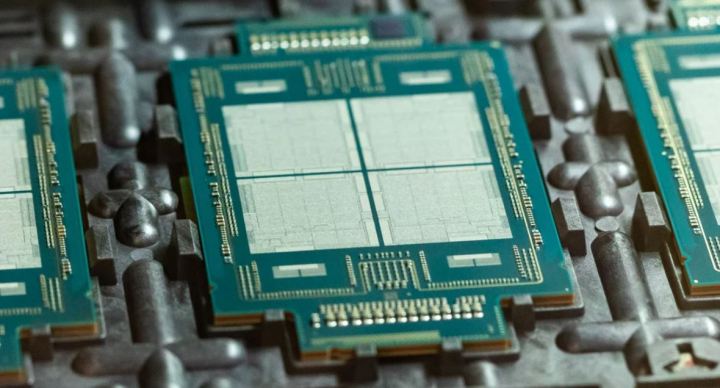Intel may be making some major changes to the architecture of its upcoming Meteor Lake chips, industry sources say. This could potentially give Intel an edge over competitors such as Apple.
According to a new report from DigiTimes, Intel may switch from using its own 7nm process node to TSMC’s 5nm.

Intel Meteor Lake refers to Intel’s 14th generation of processors that are set to release in 2023, following Raptor Lake this year. The chips will also represent the first generation of Intel chips that will feature a multi-chiplet design, combining an application processor, a GPU, and connection chips into one advanced package referred to as “Intel Foveros.”
Recent reports from Intel indicate that the company is on track with the development of the new chips. Intel is manufacturing Meteor Lake in-house at its own fabs using the 7nm process, also referred to as “Intel 4.”
According to Intel CEO Pat Gelsinger, the production has been going well and the first Meteor Lake chips have already been able to boot Windows and Linux. Gelsinger said that “the speed at which the team was able to achieve this milestone is a significant sign of the health of both Meteor Lake and our Intel 4 process technology.”
Despite the assurance that the Intel 4 process is doing swell, anonymous industry sources cited by DigiTimes state that Intel may want to move to using TSMC’s 5nm process exclusively . Previously, the compute tile was supposed to be made by Intel (alongside a few other Meteor Lake components), while TSMC’s N5 process was meant to be used to produce the integrated graphics card, as well as the input/output tile. However, Intel may indeed be switching to producing the whole Meteor Lake chip through its cooperation with TSMC.
Although there is something to be said for being able to produce its chips in-house, there could certainly be benefits for Intel from switching to TSMC — and those benefits might be an improvement for the end user.

Expanding to also use TSMC (or perhaps use it exclusively) could result in greater chip yields and could help minimize potential delays. For us, at the very end of Intel’s supply chain, this means greater access to the new processors, as well as more affordable prices. If the disastrous GPU shortage taught us anything, it’s that the harder a product is to get, the more pricey it’s going to be once you do finally find it in stock.
The advantage for Intel could also stem from the fact that TSMC has plenty of experience producing chips similar to Meteor Lake using its 5nm process. Successful chips such as Apple’s M1, M1 Pro, M1 Max, and the all-powerful M1 Ultra found in the Mac Studio, are all built on TSMC’s 5nm architecture. Joining forces with TSMC could perhaps help Intel keep up with its rival in the future.
So far, only one report about this has emerged, and Intel has yet to comment on the situation.
Editors' Recommendations
- How Intel and Microsoft are teaming up to take on Apple
- Intel’s CPUs just got way more confusing
- This Intel gaming handheld could give the Steam Deck a run for its money
- Intel may have accidentally leaked the release date for Windows 12
- Intel Meteor Lake is coming to desktop, but there’s a big catch




